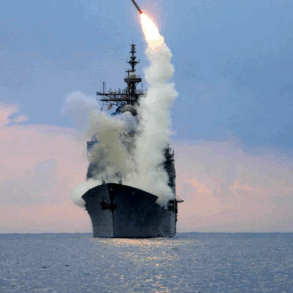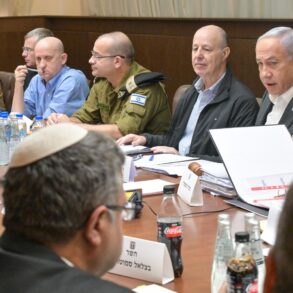On Wednesday, October 1, 2025, Israeli naval forces intercepted the Global Sumud Flotilla, a group of about 40 boats carrying approximately 500 pro-Palestinian activists, including Swedish climate activist Greta Thunberg, attempting to deliver humanitarian aid to Gaza. The flotilla, which aimed to break Israel’s long-standing naval blockade of the Gaza Strip, was stopped in international waters, roughly 70 nautical miles from Gaza’s coast. This high-profile incident has sparked global controversy, with accusations of aggression and violations of international law.
The Flotilla’s Mission and Composition
The Global Sumud Flotilla set sail from Barcelona, Spain, on August 31, 2025, and was joined by additional boats from Mediterranean ports as it approached Gaza. The convoy carried food, water, and medical supplies intended for Gaza’s civilians, who have faced nearly two years of devastating conflict. Among the participants were parliamentarians, lawyers, and activists from dozens of countries, including Spain, Italy, and Turkey. Organizers described the mission as a peaceful effort to highlight the humanitarian crisis in Gaza, where over 65,000 people have died since the war began following Hamas’s attack on Israel on October 7, 2023.
Israel’s Response and Interception
Israel’s Foreign Ministry had repeatedly warned the flotilla to change course, stating that it was entering an “active combat zone” and violating a “lawful naval blockade.” The ministry offered to transfer the aid through official channels via the Israeli port of Ashkelon, an offer the flotilla’s organizers rejected, insisting on direct delivery to Gaza’s civilians. Around 11 p.m. local time, Israeli forces boarded several vessels, including those named Alma, Sirius, Adara, and Maria Cristina, towing them to an Israeli port.
A verified video from the Israeli Foreign Ministry showed Greta Thunberg sitting on a deck surrounded by soldiers. The ministry stated on X that “Greta and her friends are safe and healthy,” and that the intercepted vessels were “safely stopped.” However, organizers alleged that the Israeli navy used aggressive tactics, including water cannons and ramming one vessel, claims that Reuters could not independently verify. No injuries were reported during the interception.
International Reactions and Controversy
The interception drew sharp criticism from several countries and organizations. Turkey’s Foreign Ministry condemned it as an “act of terror,” while protests erupted in Istanbul and Italian cities like Rome, Florence, and Turin. A major Italian labor union called for a national strike on Friday in solidarity with the flotilla and Gaza’s civilians. Colombia’s President Gustavo Petro labeled the interception an “international crime” and announced the expulsion of Israel’s diplomatic delegation from Colombia. Ireland’s Foreign Minister Simon Harris called the mission “peaceful” and urged Israel to ensure the safety of the activists.
Organizers of the flotilla denounced the raid as a “war crime,” alleging that Israel’s actions in international waters violated international law. Francesca Albanese, the UN’s top expert on Palestinian rights, supported this view, stating that Israel has no jurisdiction over waters off Gaza. Israel, however, dismissed the flotilla as a “provocative” stunt, with its ambassador to Italy, Jonathan Peled, arguing that the refusal to hand over aid to official channels showed the mission’s non-humanitarian intent.
Context of the Gaza Blockade
Israel has maintained a naval blockade on Gaza since 2007, when Hamas took control of the territory. The blockade restricts maritime access to prevent weapons smuggling, but critics argue it has worsened Gaza’s humanitarian crisis. Previous attempts to break the blockade have met with resistance. In 2010, Israeli forces killed nine activists during a raid on a similar flotilla, sparking global outrage. In June 2025, Thunberg and others were detained by Israeli forces while attempting a similar aid delivery.
The flotilla’s organizers reported earlier incidents of harassment, including drone attacks last week that dropped stun grenades and itching powder, though no injuries occurred. Israel has not commented on these allegations but claimed to have evidence of Hamas’s involvement in the flotilla, a charge the organizers dismissed as “propaganda.”
Global Support and Continued Efforts
Several countries, including Italy, Spain, and Turkey, deployed naval vessels or drones to monitor the flotilla in case their nationals needed assistance. However, Italy and Spain halted their shadowing operations when the flotilla entered Israel’s maritime exclusion zone, about 150 nautical miles from Gaza. Despite the interception of nine boats, the organizers vowed to continue their mission, stating that the flotilla was still 70 nautical miles from Gaza and would persist “undeterred.”
The incident has reignited debate over Israel’s blockade and the humanitarian situation in Gaza. As global attention remains fixed on the region, the fate of the activists and their aid remains uncertain, with calls for their release and respect for their rights growing louder across the international community.








